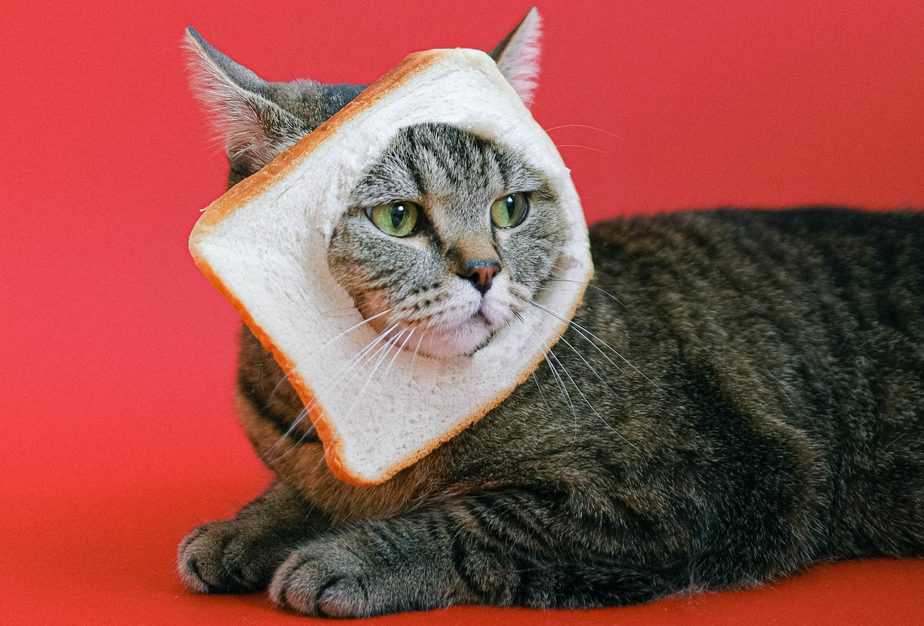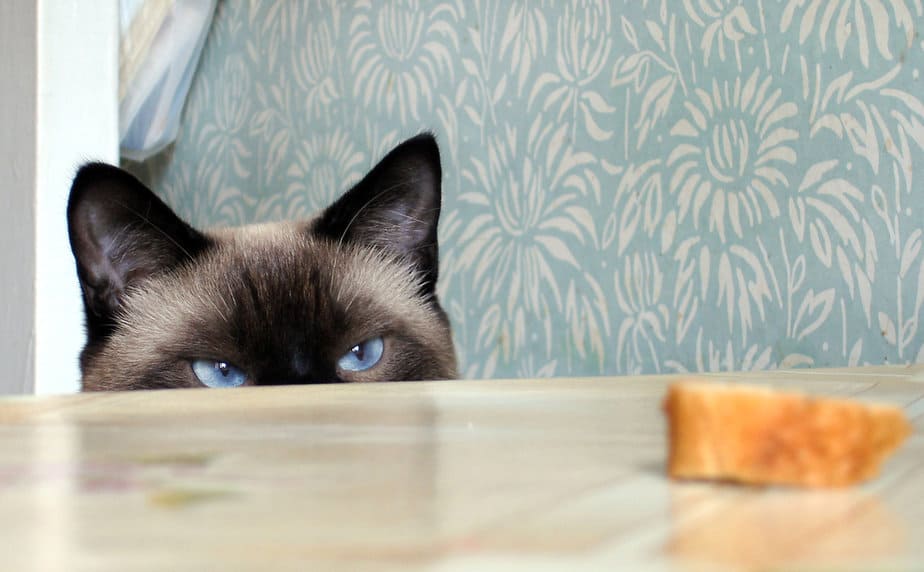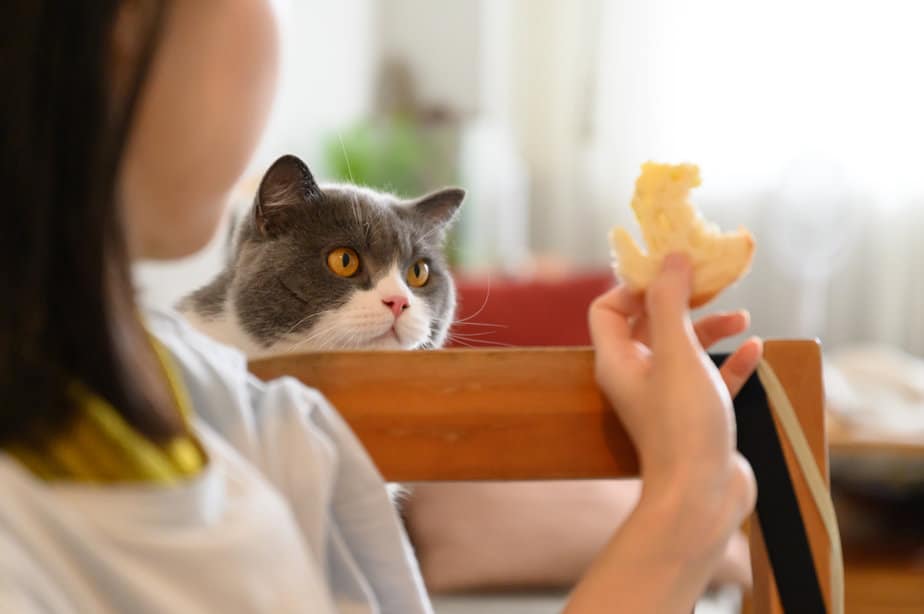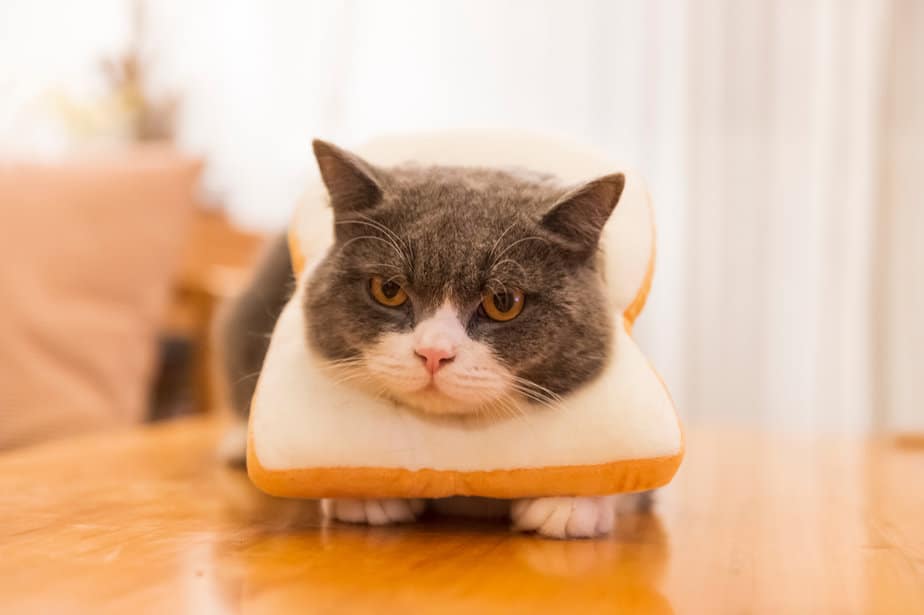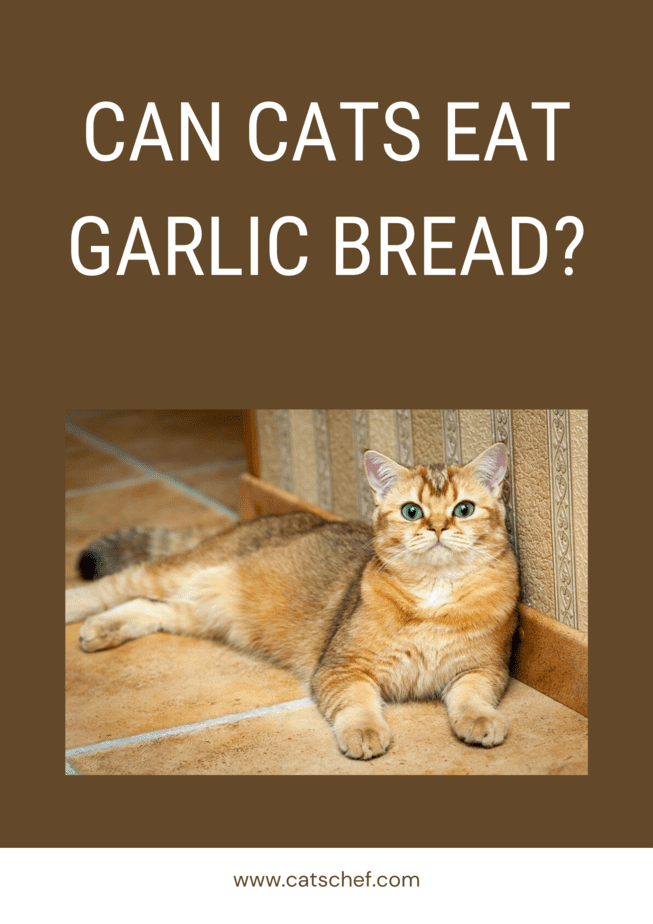📖 Table of Content:
Who doesn’t love the smell of garlic bread spreading around the kitchen while your four-legged friend meows and begs for your to let her have a taste? You don’t want to say no to her adorable, pouty snout but you can’t help but wonder: can cats eat garlic bread?
According to our friends over at the ASPCA (American Society for the Prevention of Cruelty to Animals), plain bread shouldn’t cause any harm to your curious creature. But, before the two of you put your celebratory hats on…
Garlic bread shouldn’t find its way into your cat’s food bowl. Certain ingredients found in garlic bread can wreak havoc in your cat’s digestive system, make her incredibly sick, and even rush her to the emergency animal center.
You’re surprised to hear this? Keep reading to learn everything you need to know about the complicated relationship your four-legged friend has with your favorite Sunday snack. Let’s start from the beginning!
So, can cats eat garlic bread?
While there are various ways of making this delicious delicacy, the most popular one consist of spreading a generous amount of seasoned butter over a slice of bread. We’re putting the focus on the word seasoned because that’s where the culprit lies.
Garlic bread doesn’t come without heaps of garlic, herbs, salt, olive oil, and/or butter. And unfortunately for your furry friend, none of these ingredients should be a part of her regular diet.
Olive oil and butter are pretty fattening and might be tough on her tummy. Herbs, salt, and other seasonings are quite unhealthy and might lead to various health problems. And most importantly, garlic is incredibly toxic to cats and might even lead to a fatal outcome.
So no, cats can’t eat garlic bread. This shouldn’t be too difficult for your furry friend to understand since she’s an obligate carnivore. She requires meat, animal protein, and animal-sourced nutrients in her diet. Trust me, she couldn’t care less for your garlic bread!
What’s so bad about garlic bread?
Pretty much everything! You can’t go online to look up “can cats eat garlic bread” without looking up what happens when cats eat too much garlic, salt, and fat. Trust me, once you figure that out you’ll keep all the garlic hidden in the highest cabinet in your kitchen.
1. Garlic
Oh boy, prepare to be shocked! Garlic, shallots, chives, and leeks are members of the Allium family. All members of the Allium family contain difficult-to-pronounce compounds (disulfide and thiosulphates) which can break down your cat’s red blood cells and cause hemolytic anemia.
Even a small amount of garlic (a clove of garlic or a pinch of garlic powder) can lead to something called garlic toxicity or garlic poisoning. Symptoms of garlic poisoning include difficulty breathing, pale gums, drooling, increased heart rate, and even organ failure in some severe cases.
It’s safe to say that you should shy away from feeding your furry friend anything that contains garlic. She can beg and plead all she wants, but your cat’s health should always be the number one priority.
2. Salt
While salt isn’t toxic to cats, it certainly isn’t something your cat should consume in excessive amounts. Most pet parents forget that there’s always a but when it comes to feeding your precious pet with human food. Salt isn’t going to send your pet to the emergency animal center, but…
It might send her running to the litter box. While garlic bread does pose a completely different kind of danger, it doesn’t hurt to remember that certain types of bread contain a significant amount of salt.
Too much salt can lead to excessive thirst and urination, incoordination, lethargy, vomiting, and diarrhea. Trust me, your cat’s stomach would prefer something that doesn’t contain these harmful ingredients.
3. Fat
Lastly, we can’t forget about the olive oil and butter that can be found in garlic bread. Don’t get me wrong, a small amount of fat can be beneficial for the health of your four-legged friend’s fur. But, too much of anything…
Unfortunately, excessive amounts of fat can lead to an array of health problems. From weight gain, obesity, and diabetes, to liver, pancreas, and heart disease – these incredibly dangerous conditions stem from overfeeding or poorly feeding your cat over a longer period of time.
It’s safe to say that your furry friend doesn’t thrive on garlic bread. Too much garlic, too many carbohydrates, and too many risks. It’s certainly not worth the heart attack you get when you notice your cat isn’t feeling her best!
What to do if your cat eats a piece of garlic bread?
Contact your vet immediately or rush her to the nearest emergency animal center. Don’t wait for symptoms to appear because there’s always a possibility you don’t notice them in time.
Your vet might induce vomiting and use something called the hydrogen peroxide solution. This solution helps your cat get rid of any garlic that hasn’t been processed and digested. This will, in turn, prevent her condition from getting any worse.
She might even need some supportive care including IV fluids, oxygen therapy, and a blood transfusion. While this might sound like a bunch of difficult, scary words, these things are there to help your furry friend get better.
It doesn’t hurt to say it one more time: cats can’t eat garlic bread!
